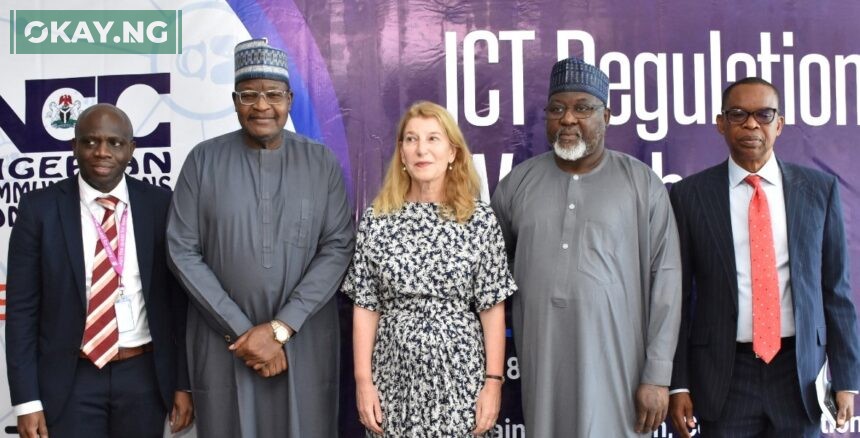The Executive Vice Chairman and Chief Executive Officer (EVC/CEO) of the Nigerian Communications Commission (NCC), Prof. Umar Garba Danbatta, has expressed his appreciation to the Swedish Government and Ericsson for their unwavering commitment and consistent partnership with the NCC in capacity building.
This partnership has significantly bolstered the Commission’s regulatory activities.
Speaking at a workshop jointly organized by the NCC and its Swedish partners within the framework of the Swedish Programme for Information and Communications Technology (ICT) in Developing and Emerging Regions (SPIDER), Danbatta emphasized the substantial progress made by the NCC in the field of ICT.
“This workshop signposts the vital role the Nigerian Communications Commission, as a regulator, has been playing in the West African sub-region. It also highlights the unending objective of keeping up with the times and ever-evolving dynamics of the telecommunications sector,” stated Danbatta.
The NCC CEO reiterated the enduring commitment of the Swedish Government and SPIDER to the cause of ICT development in emerging regions.
He acknowledged their roles in improving access to healthcare, education, income generation, and employment opportunities in West Africa, contributing to poverty reduction.
“This periodic strategic engagement under the auspices of SPIDER over the years has made the Commission a more effective regulator and enhanced its contribution to the development of the telecommunications sector. This contribution will further support the creation of an ecosystem that is beneficial to the economies and people of the region,” added the EVC.
Swedish Ambassador to Nigeria, Ghana, Cameroon, and the Economic Community of West African States (ECOWAS), Mrs. Annika Hahn, emphasized the significance of ICT regulation and capacity building as key drivers for economic development and social progress.
She commended the NCC for hosting the event and fostering collaboration between the two nations.
Hahn highlighted the global technological revolution and its potential to catalyze industrial and economic development. She stressed the need for modern and adaptable regulation to navigate this rapidly-evolving landscape.
The Ambassador also pointed out that the COVID-19 pandemic accelerated the adoption of ICT worldwide, impacting various sectors such as education, commerce, and financial services. E-learning practices on various platforms played a significant role in this transformation.
Ericsson reported that there were over 900 million registered mobile subscriptions in Sub-Saharan Africa in 2022, with a considerable portion in Nigeria, contributing to the ambitious goal of over a billion mobile subscriptions by the end of 2023 within Sub-Saharan Africa.
In conclusion, Hahn emphasized that education must be an essential part of regulatory development strategies and policies, necessitating collaboration in knowledge-sharing and upskilling of human resources by all stakeholders.












